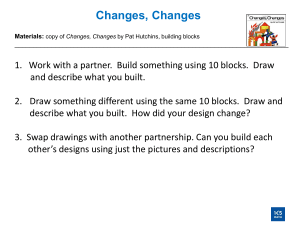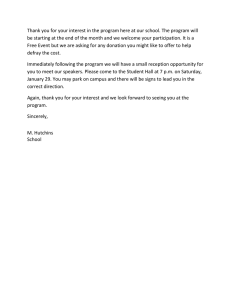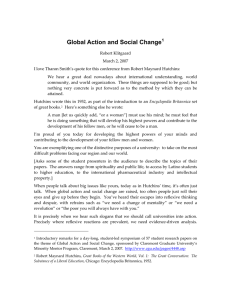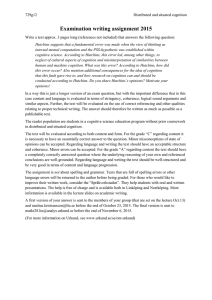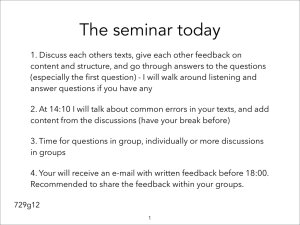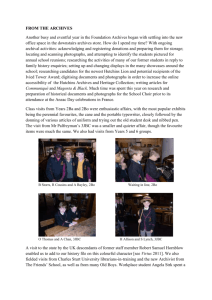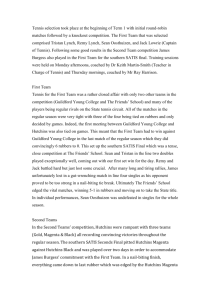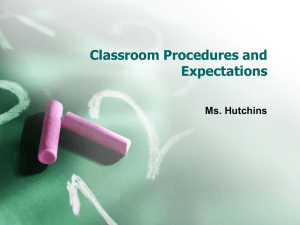STUDENT LEADERSHIP
advertisement
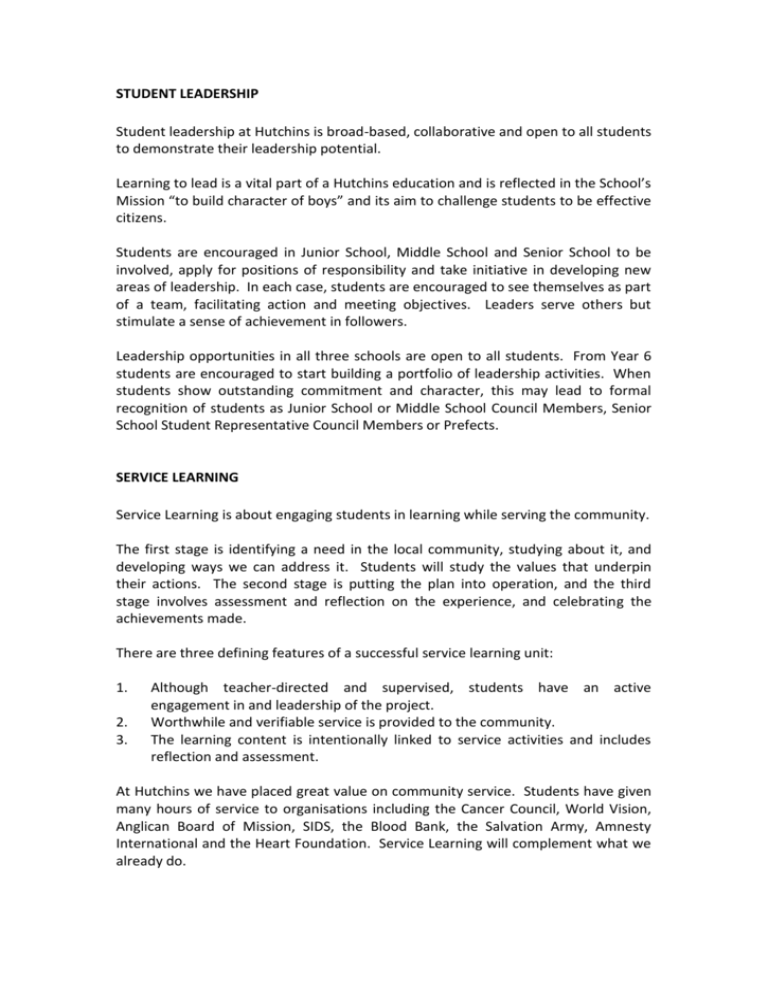
STUDENT LEADERSHIP Student leadership at Hutchins is broad-based, collaborative and open to all students to demonstrate their leadership potential. Learning to lead is a vital part of a Hutchins education and is reflected in the School’s Mission “to build character of boys” and its aim to challenge students to be effective citizens. Students are encouraged in Junior School, Middle School and Senior School to be involved, apply for positions of responsibility and take initiative in developing new areas of leadership. In each case, students are encouraged to see themselves as part of a team, facilitating action and meeting objectives. Leaders serve others but stimulate a sense of achievement in followers. Leadership opportunities in all three schools are open to all students. From Year 6 students are encouraged to start building a portfolio of leadership activities. When students show outstanding commitment and character, this may lead to formal recognition of students as Junior School or Middle School Council Members, Senior School Student Representative Council Members or Prefects. SERVICE LEARNING Service Learning is about engaging students in learning while serving the community. The first stage is identifying a need in the local community, studying about it, and developing ways we can address it. Students will study the values that underpin their actions. The second stage is putting the plan into operation, and the third stage involves assessment and reflection on the experience, and celebrating the achievements made. There are three defining features of a successful service learning unit: 1. 2. 3. Although teacher-directed and supervised, students have an active engagement in and leadership of the project. Worthwhile and verifiable service is provided to the community. The learning content is intentionally linked to service activities and includes reflection and assessment. At Hutchins we have placed great value on community service. Students have given many hours of service to organisations including the Cancer Council, World Vision, Anglican Board of Mission, SIDS, the Blood Bank, the Salvation Army, Amnesty International and the Heart Foundation. Service Learning will complement what we already do. Overwhelmingly educational research has shown that students do so much better academically when they are engaged in ways that service learning makes possible.
